Sub- Sub- Sub-Arctic Hysterics
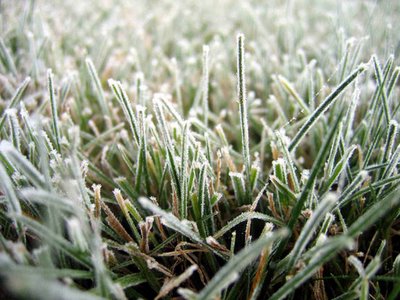
The last investigator to favor explaining shamanism by arctic hysteria, A. Ohlmarks, is even led to distinguish between an Arctic and a sub-Arctic shamanism, according to degrees of neuropathy exhibited by their representatives. In his view, shamanism was an originally exclusively Arctic phenomenon, due in the first place ot the influence of the cosmic milieu in the polar regions. The extreme cold, the long nights, the desert solitude, the lack of vitamins, etc., influenced the nervous constitution of the Arctic peoples, giving rise to mental illnesses ... or to the shamanic trance. The only difference between a shaman and an epileptic is that the latter cannot deliberately enter into trance. In the Arctic the shamanic ecstasy is a spontaneous and organic phenomenon and it is only in this zone that one can properly speak of a “great shamanizing”; that is, of the ceremony that ends with a real cataleptic trance, during which the soul is supposed to have left the body and to be journeying in the sky or the underworld. but in the sub-Arctic the shaman, no longer the victim of cosmic oppression, does not spontaneously obtain a real trance and is obliged to induce a semitrance with the help of narcotics to mime the journey of the soul in dramatic form.
-- Eliade, Shamanism: Archaic Techniques of Ecstasy, 24
ORAN’S VOYAGE TO THE NORTH
(From Iona, Fiona McCleod(William Sharp), London: William Heinemann, 1912)
It is commonly said that the People of the Sìdhe dwell within the hills, or in the underworld. In some of the isles their home, now, is spoken of as Tir-na-thonn, the Land of the Wave, or Tir-fo-Tuinn, the Land under the Sea.
But from a friend, an Islander of Iona, I have learned many things, and among them, that the Shee no longer dwell within the inland hills, and that though many of them inhabit the lonelier isles of the west, and in particular The Seven Hunters, their Kingdom is in the North.
Some say it is among the pathless mountains of Iceland. But my friend spoke to an Iceland man, and he said he had never seen them. There were Secret People there, but not the Gaelic Sìdhe.
Their Kingdom is in the North, under the Fir-Chlisneach, the Dancing Men, as the Hebrideans call the polar aurora. They are always young there. Their bodies are white as the wild swan, their hair yellow as honey, their eyes blue as ice. Their feet leave no mark on the snow. The women are white as milk, with eyes like sloes, and lips like red rowans. They fight with shadows, and are glad; but the shadows are not shadows to them. The Shee slay great numbers at the full moon, but never hunt on moonless nights, or at the rising of the moon, or when the dew is falling. Their lances are made of reeds that glitter like shafts of ice, and it is ill for a mortal to find one of these lances, for it is tipped with the salt of a wave that no living thing has touched, neither the wailing mew nor the finned sgAdan nor his tribe, nor the narwhal. There are no men of the human clans there, and no shores, and the tides are forbidden.
Long ago one of the monks of Columba sailed there. He sailed for thrice seven days till he lost the rocks of the north; and for thrice thirty days, till Iceland in the south was like a small bluebell in a great grey plain; and for thrice three years among bergs. For the first three years the finned things of the sea brought him food; for the second three years he knew the kindness of the creatures of the air; in the last three years angels fed him. He lived among the Sidhe for three hundred years. When he came back to Iona, he was asked where he had been all that long night since evensong to matins. The monks had sought him everywhere, and at dawn had found him lying in the hollow of the long wave that washes Iona on the north. He laughed at that, and said he had been on the tops of the billows for nine years and three months and twenty-one days, and for three hundred years had lived among a deathless people. He had drunk sweet ale every day, and every day had known love among flowers and green bushes, and at dusk had sung old beautiful forgotten songs, and with star-flame had lit strange fires, and at the full of the moon had gone forth laughing to slay. It was heaven, there, under the Lights of the North. When he was asked how that people might be known, he said that away from there they had a cold, cold hand, a cold, still voice, and cold ice-blue eyes. They had four cities at the four ends of the green diamond that is the world. That in the north was made of earth; that in the east, of air; that in the south, of fire; that in the west, of water. In the middle of the green diamond that is the world is the Glen of Precious Stones. It is in the shape of a heart, and glows like a ruby, though all stones and gems are there. It is there the Sìdhe go to refresh their deathless life.
The holy monks said that this kingdom was certainly Ifurin, the Gaelic Hell. So they put their comrade alive in a grave in the sand, and stamped the sand down upon his head, and sang hymns so that mayhap even yet his soul might be saved, or, at least, that when he went back to that place he might remember other songs than those sung by the milk-white women with eyes like sloes and lips red as rowans. “Tell that honey-mouthed cruel people they are in Hell,” said the abbot, and give them my ban and my curse unless they will cease laughing and loving sinfully and slaying with bright lances, and will come out of their secret places and be baptized.”
They have not yet come.
This adventurer of the dreaming mind is another Oran, that fabulous Oran of whom the later Columban legends tell. I think that other Orans go out, even yet, to the Country of the Sidhe. But few come again. It must be hard to find that glen at the heart of the green diamond that is the world; but, when found, harder to return by the way one came.
***
THE VODKA STEPPES
Nov. 18, 2005
Hitting bottom was not the worst of it.
Living in unfathomed nights was close.
It was when time itself bottomed out
in abyssal cold that I was ready at last
to compass my heart there, allowing
me at last a bead on what had to go
and enough soul-sickness to be
willing to bleed the antifreeze.
There is a music to such hopeless
doom, wistful and ethereal,
the sound of ice cubes choring blues
in empty glasses; it sings wild and
high outside the bars at 2 a.m.
and whistles in the dogs of winter
to tear your face apart and glut on
down to what remains of what you
once called a heart. I moved to
Florida to flee those wolves, but
they just followed me inside the
frozen tundra of my thirst. A full
moon in November is hard blue
in any sky, sealing palm fronds
in ice just as surely as the masts
of ice-bound whalers. The bottom
of it all was when the glacier of my
heart cracked the whole continent,
revealing the worst of what’s below,
an empty sea of utter dark where
no imps or angels go, so bereft of
human sense. It was 3 a.m. on a
January night in 1985, and I
was driving home drunk some
rock club in Kissimmee watching
others fly where I fell and fell,
my rock dreams nightmarish in
the lock of vodka tonics. It was
the twelfth night in a row that
I had drunk that way to blackout,
commiserating with my misery
over a love I’d lost for good now
months and months ago. Winds
mauled the windshield of my car,
savage crests surged from the
prow of an Edmonton Clipper
cold front which was hard-freezing
orange groves as I drove toward
the room in a friend’s dad’s house
which was all I could call home.
Van Halen on the radio playing
summery hard-rock dreams
in the depths of that immortally
cold night as I drove on and on,
the lane-stripes multiplying
at the borders of the worlds,
everything narrowing to a drone.
I rolled down my car windows
desperate to stay awake, cold
howling through them & tearing
at my face. That night I drank
the nadir or it at last swilled me
and I became the belly of the whale,
the ice in every empty glass which
will never melt, no matter how
much you pour and pour.
Having run for years from the
North Wind’s mad necessity
I became at last it’s door,
ready at last to begin to roar.
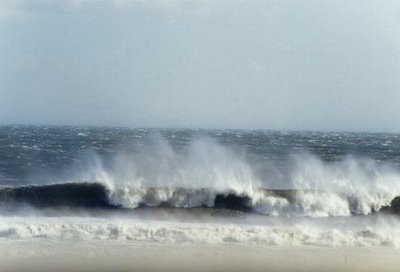
TRIPTYCH: THE LOST SON
1988
I. At The Father's House
What air he could not breathe:
the shoes he would not wear:
father chases son into the wild,
shouting his name, his voice
blurred with Scotch.
He who once spoke so well with the father
turns mute, a son swinging his
scythe in the field,
wholly a rhythm, only a motion,
a whistling bladed thing
wounding the noontime sun.
II. Prince of Solstice
Far down the year's descent
the western valley darkens.
Black hills muscle in.
The sun dies on the high spires
of firs lined on the ridge.
Then the eye closes.
I bleed too far west,
too deep in the north,
too late in the year,
a terror too pure for ambition,
too deaf to any but
the most brutal percussions.
I am the son of a greater loss.
The night turns colder, colder still.
Horsecock winds batter a tumbleweed
over empty frozen streets.
I stand out on a bridge.
The river trickles
through a black canyon of ice.
Tonight, all the river's absence is mine.
No one is out. Fierce stars burn now
in the sky, preternaturally bright,
old souls psalming in the evernight.
I walk off the bridge into the park,
empty river to empty esplanade.
Freezing winds slice my face.
Lamplight peers into the night sea.
A victim of ennui, I walk.
Captive between rage and lust, I walk.
Sidewalks into ice arcades of night,
Steps slipping on faces of glass,
Jaws of the whale where streets disappear,
I walk.
The Prince of Solstice hugs his jacket tight.
This will be a very, very long night.

THE STANDOFF
(A photo in the paper -
a man in a doorway holds a gun
to his head with one hand, in the other a beer;
two police face him behind a shield)
I stand at the door, half-in, half-out,
the winter morning jagged and cold
like the snout of this .38 jammed in my ear.
This beer’s cold too, each swig
falls slow and mean like Harlem sleet.
But my trigger finger’s colder. Frozen.
Funny, how my defeat arrests the street:
the two cops cowering behind their shield,
squad cars phalanxed on the sidewalk,
radios squawking, lights strobing bluered bluered,
sunglasses and shotguns glittering
like broken glass in the hard morning sun,
beyond them camera crews edging closer
with the crowd, fighting for a gape at my splatter.
Bored paramedics smoke by the ambulance.
The shield before me talks like a TV daddy,
muffled, asking me about my sons, my wife,
but the dull plate looks like my old man,
a shadow in steel that can’t be
shattered like a heart by my rage.
Drunk father, dark father, take no prisoners, rage.
How long? An hour, two? It isn’t up to me.
I just stand here, letting
deathrap sing in my blood. It keeps getting
louder, louder, then stops. Silence.
A wind off the lake sweeps in, it
swirls litter up in frail funnels,
then a backfiring truck startles the crowd:
and it’s happening, my wife screams Do It, Fucker,
cameras click and whirl like startled pigeons,
the guys behind the shield cower holy Jesus,
and blood erupts in the stone of my finger,
screaming nothing’s getting in, man
I take no prisoners
I squeeze my eyes shut and shut and shut and
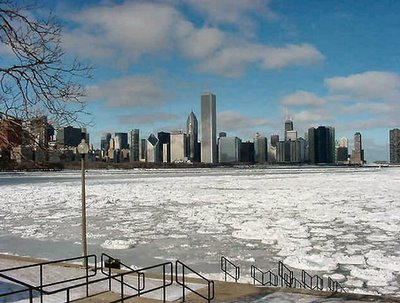
MY FATHER’S CHAPEL
1992
In a black-and-white photograph
my father stands before his chapel.
His face is set hard and grey
like the standing stone he rests a hand on.
The sky behind is troubled.
This is my altar to him.
My father’s chapel is hidden in the woods,
assembled from stone rows that grew from
generations of field-clearing.
Inside the chapel it is damp, dark, cool,
a descent into old regions of the world.
A quartz-veined, granite boulder
ten feet round fills the center of the chapel.
It is a heart forged in brimstone and eternal cold.
It was in my father for years before he dug it up.
My father says he is a steward of ancient spirits
he calls The Guardians. He met their chief at Iona:
Thor, the black blasted warrior of the Hebridean wind,
How my father’s heart burst with love for him. . .
One winter solstice, my father’s chapel
was bitterly cold. Frail candles flickered in
the windows, sad winds bent the bones
of trees. The death of the year.
My father and I sang together that solstice night,
our voices deepened by the resonance
of stone walls. We sang a plainchant of loss
and of infant hope. That was the dream of my father,
That is the shadow of my heart.
Tonight, on this winter solstice, I raise my
voice in song to my father’s bitter sea
that blusters deep in the conch of my ear,
a song forever trapped in the chapel of these bones.
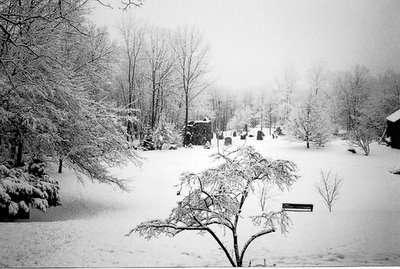
THE ICEBERG
2000
A dark room
brushed the
faintest blue
by a full moon
far to the west,
revealing only
what’s outermost.
Like the delicate
ridges and rills
of an iceburg
floating silent
and serene
in a blackened
sea, a pale semaphore
of what hauls so
massively below
in my dream of
death, or you.
MARTINI SONG
2001
A cold clear vodka martini
widens a soft envelope
against walking or waking.
It suffices when the ex-wife
can hardly speak to you
and Republicans rule.
When no poem I write
blossoms, much less
bears any sugar in its fruit.
Another one, bartender,
while I stand here as usual
not speaking or moving at all,
a blonde pillar in black
bereft of all but this
cold fire, this one bed.
Who would want such a
poppy grown from nothing?
What compost would not
fail to turn over this half-moon,
twice-tomb? And yet bone music
drowses and dreams here,
song enough, when there’s
little else I would be about,
when there’s no other heat
in the room. Oh how
wickedly sweet this booze
on a night so bottomless.
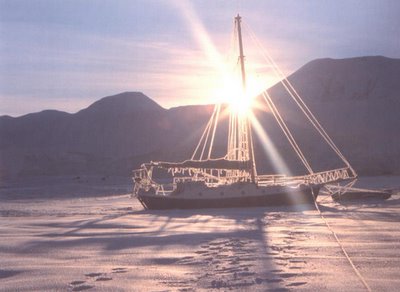
MANGER SCENE II
Up he rises from the dumpster
Behind the Pink Pussycat, the
Full receipt of every lost and
Forlorn ache which you deigned not
To receive. Amid the empty
Buds and butts and vomit-
Smelling rags he’s the crown prince,
Mewling (OK, groaning) as
Any babe would arising from
Such death. Well, he and I begin
Here, amid Her sordid trash.
The sour light proclaims a cracked and
Bleeding dawn -- poor afterbirth
Indeed though the psalm proclaim
New motion where old salt was lain.
HOMELESS FOR CHRISTMAS
2001
There were plenty
of homeless guys
walking the downtown
streets on Christmas Day,
a trudge of coats
and shabby boots and
faces turned in from
cold rain — fellas
who couldn’t hold on
as they fell through us,
addicted, insane,
criminally resentful,
down on their
fickle and fruitless luck,
cut loose from all they
couldn’t work for.
One crossed in
front of my car
(slow wipers, bluesy
Christmas jazz,
heater warm at my knees)
as I headed home
like a dark dream
exposed to cold light,
his eyes holding mine
for just one moment,
providing a chill sounding
from a deeper bottom of things
and a reminder that
there’s a place reserved
for me down and out there,
no matter how yesterday went.
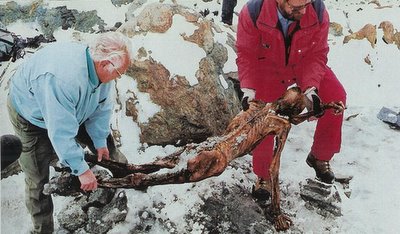
NEKYIA
2003
Without a prayer,
these falls are cruel;
without ritual wraps,
the cold is killingly
dark, stripping and
flaying the coracle
of my ass like
the houndage of Hell.
I’ve found it dangerous
to sail sans pen and
book, drowning down
a bottles neck in search
not of dark truths
but their uteral burn,
their cold fire. What’s
an addict but a monk
whose tossed his book
to the sea, babbling
a blue inpropriety?
The chaos sings to
of a killing plunge,
of upturned asses on
sheets of blue stain,
of dreamlike hellbent
furrows past God,
past love, past this
noisy, chilblained
chainage to life.
No more of that
black winging for me --
Now I dip my feathers
here at the same
predawn hour, the
cat always in the window
the dark soaking
into this page,
exhuming all I
wish I could say
but can’t, though I must.
Maybe its just lack of
balls that rivets me here
on the chalice dipping
the Well, hauling up
waters cold as hell
for your thirst, absent
reader, beloved I’ll
never truly see: But
at least I know that
now, and trade the
old jackal jaw gildings
for this singing geldage.
My questing for
real grails always left
me bankrupt & on
the iron ledge of the
tallest bridge with only
one word left--leap.
None of that here folks,
no sirree; just dutiful
descriptions of what
it feels like stepping
out onto the feathers
of the wind soaring
up at me, angels of
that hard north wind
where all the devils
go, buckets of banshee
riot jissomed up from
the Well which allows
me today another story
to tell of one more
harrowing of a
common and fructive
and nougating hell.

COLD SONG
This song is hauled up from a cold well
Nearby — Oran’s, I sense, though
His skull is just the topmost phosphor
In the darkened flow. From this chair
In sleepy Florida I taste
The salt of Hebrides — brutal,
Male, like iron on the tongue, wild
As the orca-rollers which smash
The Orkney coast. I tried this sea-
Chantey strapped to a guitar, but
The roar would not be amped or staged
or spermed in nereid blue. All
that puerile wattage drowned the song.
I threw my guitar down a well.
Oran sings from that falling shell.

<< Home